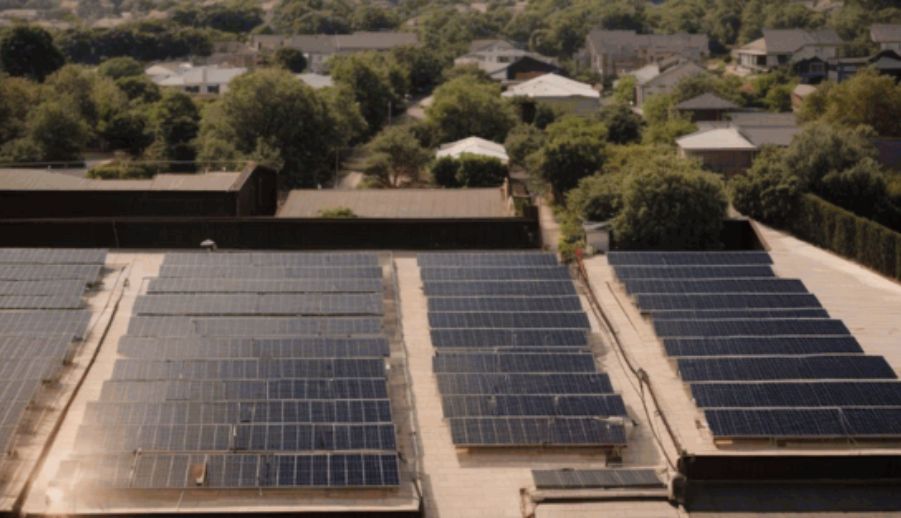Solar panels have become a popular topic of discussion in recent years, hailed as a renewable energy source that can help reduce our carbon footprint.
We will explore the advantages and disadvantages of solar panels, as well as their environmental impacts.
We will also delve into the question of whether solar panels truly qualify as green energy and how they can be used to reduce our carbon footprint.
Let’s dive in and uncover the truth about solar panels!

What Are Solar Panels?
Solar panels, also known as photovoltaic systems, are devices that convert sunlight into electricity through the photovoltaic effect.
This process is made possible by the solar cells within the panels that absorb sunlight and generate direct current (DC) electricity. These solar cells typically consist of silicon crystals that, when exposed to sunlight, produce an electric current. The electricity produced by the solar cells can then be used to power homes, businesses, and other electrical devices. The efficiency of solar panels in converting sunlight into electricity has been steadily improving over the years, making them a reliable and sustainable source of energy.
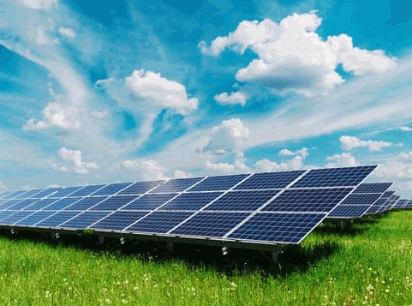
How Do Solar Panels Work?
Solar panels operate by utilizing advanced solar technology to capture sunlight and convert it into usable energy for electricity generation.
This process involves photovoltaic cells within the solar panels that absorb solar radiation and create an electrical current, ultimately acting as a sustainable power source. As the sunlight hits the panels, the photons knock electrons loose from atoms, generating a flow of electricity. This electricity can then be used to power homes, businesses, and even entire cities, reducing reliance on traditional fossil fuel-derived sources of energy. Through this innovative technology, solar panels play a crucial role in harnessing renewable energy and contributing to a cleaner, more environmentally friendly future.
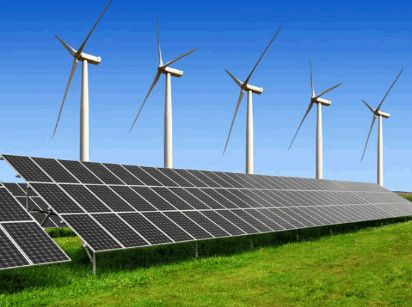
What Are The Advantages Of Solar Panels?
Solar panels offer numerous advantages, promoting sustainable living practices and enhancing energy efficiency in various settings.
They are a key source of sustainable energy, harnessing the power of the sun to generate electricity and reduce reliance on non-renewable resources. By utilizing clean energy from solar panels, individuals and businesses can lower their carbon footprint and contribute to a healthier environment. Solar panels can lead to long-term cost savings as they require minimal maintenance and can significantly reduce electricity bills over time. The versatility of solar panels also allows for off-grid living, offering independence from traditional power sources and enabling self-sufficiency.
Dive into details: Are Solar Panels Good For Your House
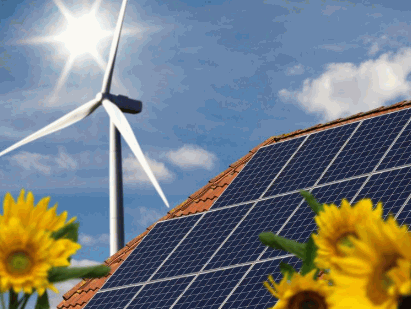
Renewable Energy Source
One of the key advantages of solar panels is their role as a renewable energy source, harnessing the power of solar radiation to generate sustainable solar power.
Renewable energy sources like solar power play a crucial role in promoting energy independence and reducing reliance on finite resources. By capturing sunlight and converting it into electricity, solar panels offer an environmentally friendly alternative energy solution. As the world moves towards a more sustainable future, the adoption of solar panels continues to increase, helping to decrease carbon footprints and mitigate the effects of climate change. This shift towards renewable energy sources not only benefits the environment but also stimulates economic growth and job creation in the clean energy sector.
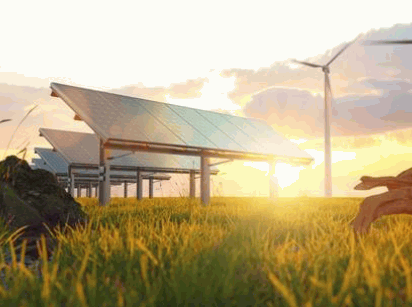
Cost-Effective
Solar panels are a cost-effective solution for energy generation, with decreasing solar panel costs making them increasingly accessible to a wider range of consumers.
As the cost of solar installation continues to decrease, more households and businesses are opting to invest in solar power systems to capitalize on the long-term savings. The initial investment in solar panels is often offset by a significant reduction in electricity bills, leading to substantial savings over time. Government incentives and rebates further contribute to the affordability of solar technology, making it a financially wise choice for those looking to decrease their environmental impact and save on energy costs.
Low Maintenance
Solar panels require minimal maintenance once installed, offering a hassle-free energy solution that aligns with eco-conscious solar solutions.
The beauty of solar benefits lies in their durability and reliability, allowing homeowners to harness clean energy effortlessly. With a lifespan of around 25-30 years, solar panels continue to produce electricity steadily, requiring only occasional cleaning to maintain peak efficiency. Their eco-friendly attributes also make them a sustainable choice, reducing reliance on fossil fuels and minimizing carbon footprint. By soaking up sunlight and converting it into electricity, solar panels not only save money in the long run but also contribute to a greener planet.
Can Be Used Anywhere
One significant advantage of solar panels is their versatility, as they can be installed and utilized in various locations, catering to diverse solar power installation needs.
The flexibility of solar panels extends beyond just their ability to be placed in different locations. These panels can adapt to a range of environmental conditions, making them suitable for various climates and terrains. This adaptability not only enhances their environmental benefits but also ensures power reliability in different settings. Whether installed on rooftops of urban buildings or in remote off-grid locations, solar panels continue to showcase their versatility and contribute to a sustainable energy future.
What Are The Disadvantages Of Solar Panels?
Despite their benefits, solar panels come with certain disadvantages, including initial installation costs and space requirements for optimal efficiency.
These drawbacks often discourage potential buyers from investing in solar energy systems. The upfront expenses can be substantial, making it a significant financial commitment.
The dependence on sunlight means that energy production may fluctuate, especially on cloudy days or during the night. Spatial considerations also play a crucial role, as not all roofs or properties are suitable for accommodating solar panels. This limitation can hinder the widespread adoption of solar energy and pose challenges for individuals or businesses looking to prioritize energy conservation.
Initial Cost
The initial cost of installing solar panels can be a barrier for some individuals, as the upfront investment for solar power systems may require financial planning.
It’s important to consider the long-term benefits and potential savings that solar panels can offer. Incentives such as government rebates and tax credits can help offset the initial cost, making solar energy a more affordable option in the long run. As technology advances and solar panel costs continue to decrease, the return on investment for solar installations is becoming increasingly attractive. With the potential for reduced energy bills and the opportunity to earn money back through net metering programs, installing solar panels can ultimately lead to substantial financial gains over time.
Dependence On Sunlight
Solar panels rely on sunlight for energy generation, leading to a dependence on consistent solar radiation for efficient solar electricity production.
During low-light conditions, such as cloudy days or nighttime, the decrease in solar radiation can impact the efficiency of power generation from solar panels. This is a key concern in the field of renewable energy, as the ability to consistently produce electricity from solar sources directly correlates with the environmental impact of reducing reliance on fossil fuels.
Solar panels operate most effectively when exposed to direct sunlight, as they allow for optimal conversion of solar energy into electrical power, highlighting the importance of maximizing exposure to sunlight for sustainable energy production.
Space Requirements
Solar panels necessitate adequate space for installation, which can pose challenges in certain settings due to land use restrictions and spatial considerations.
In urban areas, the availability of suitable space for solar panel installation becomes even more crucial. The demand for land in densely populated cities often conflicts with the need for expansive solar arrays. This dilemma highlights the importance of strategic planning to optimize land use and minimize the carbon footprint associated with solar energy systems. Factors such as shading, orientation, and proximity to power grid connections further influence the selection of installation locations, emphasizing the need for thorough assessments before embarking on solar projects.
Are Solar Panels A Green Energy Source?
Solar panels are recognized as a green energy source due to their eco-friendly attributes and sustainable contribution to reducing carbon footprint.
These innovative devices harness sunlight to generate electricity, offering an environmentally conscious alternative to traditional energy sources. By utilizing renewable energy from the sun, solar panels play a crucial role in combating climate change and promoting a more sustainable future. In addition to reducing greenhouse gas emissions, solar panels also help to decrease reliance on non-renewable resources like fossil fuels, thus minimizing environmental degradation. Their installation on rooftops or vast solar farms signifies a commitment to adopting clean energy solutions and fostering a greener planet.
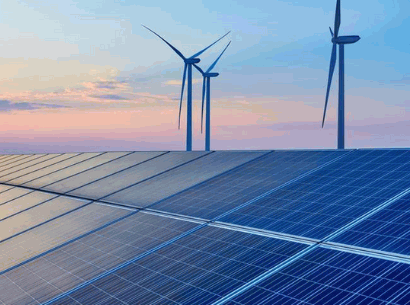
What Is Green Energy?
Green energy refers to sustainable and environmentally friendly energy sources, such as solar panels, that promote renewable energy generation for a cleaner future.
Renewable energy sources like solar panels have gained significant attention in recent years due to their role in combating climate change and reducing greenhouse gas emissions. The transition towards green energy is crucial in sustainability efforts as it helps decrease reliance on fossil fuels, which are a major contributor to environmental degradation. By harnessing the power of sunlight through solar panels, individuals and businesses can not only reduce their carbon footprint but also contribute to a more sustainable and eco-friendly energy landscape. Green energy plays a vital role in shaping a greener and cleaner future for generations to come.
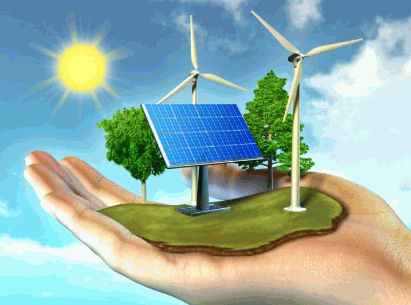
How Do Solar Panels Fit Into Green Energy?
Solar panels play a crucial role in the green energy landscape by offering a sustainable energy solution that aligns with eco-conscious practices and provides numerous environmental benefits.
By harnessing the power of sunlight to generate electricity, solar panels contribute significantly to reducing reliance on fossil fuels and decreasing carbon emissions. This transition to solar power promotes energy efficiency by utilizing a renewable resource, ultimately leading to cost savings for households and businesses. The installation of solar panels helps to minimize the environmental impact associated with traditional energy sources, such as coal and natural gas, by reducing pollution and conserving natural resources.
What Are The Environmental Impacts Of Solar Panels?
Solar panels have positive environmental impacts by reducing carbon footprint, improving waste management practices, and minimizing overall environmental harm.
Solar panel technology plays a key role in promoting sustainability through its ability to harness renewable energy sources. By utilizing solar panels, individuals and businesses can significantly reduce their dependence on fossil fuels, thus lowering harmful emissions released into the atmosphere. The production process of solar panels involves minimal waste generation compared to traditional energy sources, contributing to a more eco-friendly approach to electricity generation. This integration of solar energy into everyday practices not only helps in waste reduction but also fosters a culture of energy conservation and environmental stewardship.
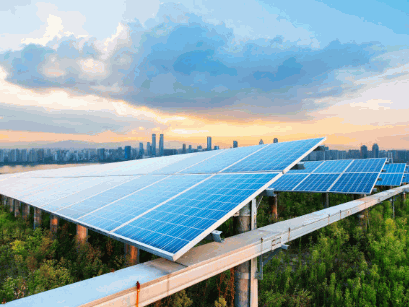
Production Process
The production process of solar panels involves manufacturing techniques that aim to minimize environmental impact and energy consumption, aligning with sustainable production practices.
These panels are typically constructed using raw materials like silicon, cadmium telluride, or copper indium gallium selenide (CIGS). These materials undergo processes that involve cutting, doping, and creating thin film layers to convert sunlight into electricity efficiently.
While solar technology offers renewable energy solutions, the manufacturing process must also consider its ecological footprint. To address this, many companies are investing in eco-friendly manufacturing practices such as recycling materials, reducing water usage, and using clean energy sources during production.
Waste Management
Proper waste management strategies for solar panels ensure responsible disposal practices and promote recycling efforts to reduce environmental impact and enhance sustainability.
By implementing recycling initiatives, the lifecycle of solar panels can be extended, reducing the demand for new raw materials and energy consumption. This not only contributes to a more sustainable energy future but also helps in minimizing the carbon footprint associated with solar panel production. Emphasizing the importance of end-of-life recycling processes underscores the commitment to clean energy practices and environmental stewardship, paving the way for a greener and more eco-friendly approach to solar panel usage.

Land Use
Solar panel installation requires careful consideration of land use requirements to optimize efficiency and minimize ecological disruptions in various environments.
Maximizing space utilization is crucial for harnessing the full potential of renewable energy sources such as solar power. By strategically planning the layout of solar panels, developers can enhance the efficiency of energy generation while also mitigating the impact on surrounding ecosystems.
The choice of location for solar installations can greatly influence their effectiveness, with factors like sun exposure, terrain, and proximity to infrastructural support playing key roles.
Balancing the need for renewable energy expansion with environmental sustainability is essential for a successful transition to cleaner energy alternatives.
How Can Solar Panels Be Used to Reduce Carbon Footprint?
Solar panels offer a sustainable solution to reduce carbon footprint by generating clean energy, promoting energy conservation, and mitigating the environmental impact of traditional power sources.
By harnessing sunlight to generate electricity, solar panels play a vital role in shifting towards cleaner energy sources. The power generation from solar panels results in significantly lower greenhouse gas emissions compared to fossil fuels. The installation of solar panels encourages energy conservation practices by tapping into renewable resources. This integration of sustainable energy not only reduces dependency on non-renewable sources but also contributes to a greener and more environmentally friendly power grid.

